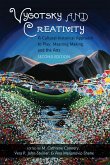Cultural-historical psychology (also called the school of Vygotsky, sociocultural psychology, socio-historical psychology, activity theory, cultural psychology, cultural historical activity theory, and social development theory) is a theory of psychology founded by Lev Vygotsky at the end of the 1920s and developed by his students and followers in Eastern Europe and worldwide. Cultural- historical psychology emerged as a response to Cartesian dualism between mind and body in psychology of that time as a deliberate attempt to establish a new paradigm in psychological research that would overcome the narrow objectivism of behaviourism (Watson) and subjectivism of introspective psychology of Wundt, James, and others. It focuses on human development to make genetic claims about the function of mind in activity. These claims could be part of, or a basis for, a return to the unity of human sciences. Vygotsky and his associates postulate in principle non-adaptive character and the mechanisms of higher psychical (mental) functions development.
Bitte wählen Sie Ihr Anliegen aus.
Rechnungen
Retourenschein anfordern
Bestellstatus
Storno








